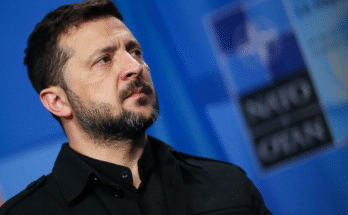LE BOURGET, France — Europe’s ambition to reduce its significant reliance on U.S. weaponry will require substantial time and unwavering political commitment, according to Éric Béranger, CEO of European missile manufacturer MBDA. With more than half of Europe’s defense procurements currently originating from America, decoupling from this dependence “cannot happen overnight,” Béranger told a consortium of four European news outlets, including POLITICO, emphasizing that the timeline is ultimately “a matter of political will.”
Europe possesses all the essential components to develop state-of-the-art military equipment—intellectual capital, industrial infrastructure, and financial resources. However, despite these inherent strengths, shifting away from American suppliers, whose best-selling kits include critical systems like HIMARS, Patriot air defense systems, and F-35 fighter jets, presents a formidable challenge.

The Scale of Dependence and a Shifting Geopolitical Landscape
The depth of this reliance was starkly highlighted in former European Central Bank Chief Mario Draghi’s 2024 report on European competitiveness. His findings revealed that an astonishing 78 percent of the €75 billion EU countries spent on defense between June 2022 and June 2023 went outside the bloc, with a dominant 63 percent directed to the United States. This dependency is particularly acute for advanced systems like the fifth-generation F-35 fighter jet, which, despite some reservations from countries like Portugal and Canada, remains a committed choice for Germany, Belgium, the U.K., and many other European nations.
However, the geopolitical calculus has significantly shifted, particularly with the return of U.S. President Donald Trump to the White House. Europe’s overreliance on American weapons is now under intense scrutiny as European nations rapidly increase their defense spending and strive to rebuild their domestic defense industries. Béranger noted that Trump’s recent strained interactions with Ukrainian President Volodymyr Zelenskyy in the Oval Office have “deeply seeded doubt in the minds of the rest of the Western world, and in particular in Europe, on the reliability of the U.S. commitment to the NATO alliance.” Yet, he cautioned that despite this newfound awareness, “there is a lot of inertia” within the system.
Sovereignty as a New Selling Point
MBDA, a leading European defense company producing a range of systems from ground-based air defense to air-to-air missiles, operates with independent units across France, the United Kingdom, Italy, and Germany. A key differentiator for MBDA’s products is their general exemption from U.S. International Traffic in Arms Regulations (ITAR). These regulations grant the U.S. the power to restrict the use and resale of American-made weapons purchased by other nations.
Béranger observed a significant change in European capitals regarding these restrictions. “Previously, a number of countries did not have any issue with ITAR and now, they are starting to question it,” he revealed. While European governments will not cease American weapon procurements “tomorrow morning,” the CEO stressed that “it’s part of the questions they are asking themselves now.” He concluded, “Sovereignty has now become a topic of discussion.”
The coming months will provide crucial insights into Europe’s willingness to translate these discussions into concrete action. Several forthcoming procurement decisions in European capitals will serve as a litmus test for the continent’s resolve to limit its reliance on the U.S. For instance, Denmark, a country that has faced repeated threats from Trump regarding Greenland, is expected to choose between the Franco-Italian SAMP/T NG air defense system (jointly developed by MBDA and Thales) and the U.S. Patriot in the coming weeks. The outcome of this bid will be a strong indicator of whether European nations are truly prepared to endorse non-American alternatives.
Germany also remains a pivotal nation to watch. Béranger expressed his astonishment at German Chancellor Friedrich Merz’s campaign-trail calls for greater independence from the U.S., even though he has since moderated his statements upon taking office. While acknowledging that Germany cannot “suddenly become totally autonomous overnight,” Béranger highlighted that with Germany now preparing to make significant defense investments, “we will see how they invest it.” The choices made by key European players like Germany and Denmark will undoubtedly shape the future trajectory of European defense autonomy.


